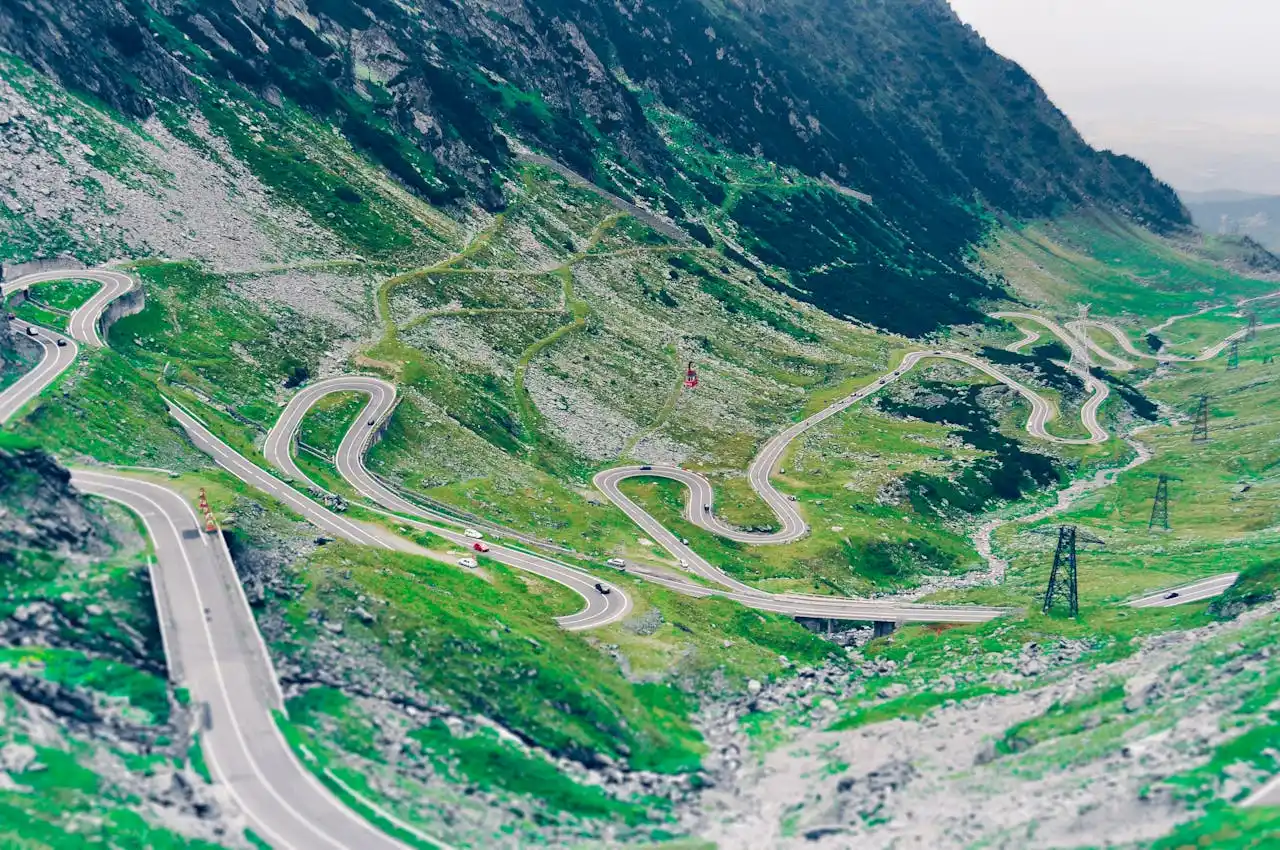Romania, a beautiful country with a rich cultural and historical heritage, is an increasingly popular travel destination. However, just like in any foreign country, understanding the cultural norms and what might be considered impolite or taboo is crucial for any traveler. While Romanians are generally welcoming and understanding of cultural differences, there are still certain behaviors that can be viewed as disrespectful or inappropriate. This article aims to provide an in-depth guide on what not to do in Romania to ensure you have a smooth and enjoyable experience.
What Things You Should Avoid In Romania: A Comprehensive Guide
1. Don’t Forget to Take Your Shoes Off When Entering Someone’s Home
In Romania, it is customary to remove your shoes when entering someone’s home. This practice is a sign of respect and cleanliness. Although not all Romanians may follow this rule strictly, it is a good idea to be prepared. If you are unsure, you can always ask your host if they would like you to remove your shoes. In most cases, they will offer you a pair of indoor slippers to wear.
If you find yourself in a situation where you’re visiting a family for the first time, don’t be offended if they insist you take off your shoes. It’s simply part of Romanian hospitality and respect for their living space.
2. Don’t Reject Food and Drink Offers
Romanians are incredibly hospitable, and food plays an essential role in their social interactions. When visiting someone’s home, it is common for the host to offer you food or drink. Refusing these offers might be seen as impolite, as Romanians take pride in sharing what they have.
If you don’t want to accept, it’s okay to politely explain that you’re full or have dietary restrictions. However, if you enjoy the food, don’t hesitate to ask for seconds. Your host will appreciate the compliment, and it will help foster a deeper connection.
3. Don’t Offer Flowers in Even Numbers
Romanians have specific customs when it comes to gifting flowers. When presenting flowers as a gift, it’s considered bad luck to give an even number of flowers. Odd numbers, such as 3, 5, or 7, are considered lucky and appropriate for gifting. This tradition is rooted in Romanian superstitions and reflects the country’s deep connection to cultural beliefs and rituals.
If you plan on bringing flowers to a Romanian home or a celebration, ensure the bouquet has an odd number of blooms to avoid any unintended offense.
4. Don’t Attend Weddings Without Offering a Monetary Gift
In Romania, weddings are often celebrated with large gatherings, and offering a monetary gift is a significant part of the tradition. This is particularly important among family and close friends. Typically, the monetary gift should cover at least the cost of your meal and your share of the celebration expenses. For example, a contribution of 200 euros per person is often considered a fair amount, although it may vary depending on the location and relationship with the couple.
If you are invited to a Romanian wedding but are unsure about the amount to give, feel free to ask other guests or consult with the couple’s family. As a foreigner, your contribution will be appreciated, but the expectation is generally not as high as for close relatives.
5. Don’t Forget to Respect the Superstitions Around Gifts at Baptisms
Just as in weddings, it’s customary to offer a monetary gift at baptisms as well. However, the amount typically tends to be smaller than what would be expected at a wedding. Keep in mind that Romanians take baptisms very seriously, and offering a gift, usually in cash, is a mark of respect for the child and the family.
If you are unsure of the right amount to contribute, it’s okay to ask close friends or family of the host about what is customary. It’s a gesture that shows your appreciation for being invited and your respect for Romanian traditions.
6. Don’t Overlook the Importance of Personal Space
Although Romanians are friendly and love socializing, they do have an understanding of personal space, and getting too close too quickly might be perceived as invasive, especially if you don’t know the person well. Maintain a comfortable distance and wait for cues from locals as to when it is appropriate to move closer. In more intimate or familial settings, a hug or a kiss on the cheek might be common, but it’s always best to wait for the other person to initiate such gestures.
This awareness of personal space is important when interacting with Romanians in both formal and casual settings, as it shows respect for their boundaries.
7. Don’t Assume That All Taxi Services Are Trustworthy
While Bucharest and other Romanian cities have a growing taxi service, travelers should be cautious when choosing a taxi, particularly if you are hailing one from the street. It’s not uncommon for tourists to fall victim to taxi scams, especially in tourist-heavy areas, like airports and train stations.
Instead of hailing a random cab, it’s safer to use ride-sharing services such as Uber, Bolt, or local taxi apps like Speed Taxi and Taxi Meridian. These services are regulated, offer better transparency with prices, and are generally more reliable. If you do need to take a traditional taxi, always ensure the meter is turned on and ask about the fare before getting into the vehicle.
8. Don’t Bribe the Authorities
Romania has made significant progress in reducing corruption in recent years, but it is still important to avoid engaging in any form of bribery. Offering bribes is illegal, and even though the country has a reputation for corruption, participating in such behavior could land you in serious legal trouble. If approached by an official asking for a bribe, politely refuse and report the incident to the authorities. It’s always safer to handle situations with professionalism and avoid complicating things further.
9. Don’t Be Surprised by Delays in Public Transportation
Romania is a country where things may not always run according to schedule. If you plan to use public transportation, particularly trains and buses, be prepared for delays. Trains may be late due to weather conditions such as snowstorms or heatwaves, and buses might not always adhere strictly to timetables.
It’s essential to build some flexibility into your plans when using public transport. Allowing extra time for unexpected delays will help reduce stress and keep your travel plans on track.
10. Don’t Underestimate Romania’s Natural Power
Romania is home to the stunning Carpathian Mountains, lush forests, and sprawling hills, making it an ideal destination for hiking and outdoor activities. However, nature can be unpredictable, so it’s important not to underestimate its power. If you’re planning a hike, especially in the Carpathian region, make sure you’re properly equipped with the necessary gear. Many trails are not marked clearly, and some areas have limited or no mobile signal, so you need to be fully prepared.
Before heading out, do research on the hiking trail, the weather conditions, and the necessary supplies. Make sure you carry a map or use a GPS device, and always stay on marked paths to avoid getting lost. Romania’s nature is beautiful, but it requires caution and preparation, particularly when venturing into the wild.
11. Don’t Pet Stray Animals
Romania has an ongoing issue with stray dogs, particularly in cities like Bucharest. While some of these dogs are friendly and well-behaved, others might not be, and it’s important to avoid petting them. Strays can carry diseases, and while they may seem harmless, it’s best not to take unnecessary risks. If you encounter a stray dog, avoid engaging with it, no matter how cute it seems. Simply walk away and give them space.
Additionally, Romania is working to improve the stray dog situation, but it’s still a good practice to be cautious and respectful when encountering animals in public spaces.
12. Don’t Ignore Local Customs During Religious Holidays
Romania is predominantly an Eastern Orthodox Christian country, and religious holidays play an important role in the cultural life of its people. If you visit Romania during Easter, Christmas, or other religious holidays, be aware of the customs and traditions associated with these periods.
For instance, during Easter, it is customary to exchange dyed red eggs as a gesture of goodwill, and Christmas is often celebrated with traditional foods and family gatherings. If invited to join in any of these celebrations, it’s important to be respectful of the customs. Don’t make assumptions about how people celebrate or treat religious practices lightly.
Similarly, try to avoid discussing or criticizing religious matters unless you know the person well, as religion can be a sensitive topic for many Romanians.
13. Don’t Disrespect Romania’s History
Romania has a complex and often painful history, particularly due to the period of communist rule under Nicolae Ceaușescu. While discussing Romania’s history is not off-limits, it’s important to approach sensitive topics such as communism, the 1989 revolution, and the country’s political past with caution. Many Romanians still have strong feelings about the communism era, and these topics can easily lead to heated discussions or discomfort.
If you do engage in conversations about Romania’s history, be respectful, avoid making negative judgments, and listen carefully to what locals have to say. Many Romanians are eager to share their personal experiences, but it’s essential to approach these discussions with empathy.
14. Don’t Make Assumptions About Romanian Culture
Romania is a diverse country with a blend of ethnicities and cultural influences. While most Romanians share a common language and cultural heritage, the country also has a significant Hungarian, Roma, and Ukrainian population, each with its own traditions and customs. It’s important to avoid generalizing or making assumptions about Romanian culture based on stereotypes.
Take the time to learn about the different regions and peoples of Romania and embrace the country’s diversity. Romanian culture is rich and multifaceted, and understanding this diversity will allow you to enjoy a more immersive experience.
15. Don’t Be Loud or Overly Boisterous in Public
While Romanians are generally warm and friendly, they do appreciate a certain level of decorum and respect for personal space in public settings. In general, being excessively loud, especially in public spaces like restaurants, cafes, or public transport, is seen as inconsiderate. The same goes for talking loudly on the phone in public places, which can be seen as disruptive.
Keep your volume at a moderate level when socializing or traveling around the city, and try to be mindful of those around you, especially in quiet places like museums, libraries, or places of worship.
16. Don’t Compare Romania to Other Countries
Although Romania is a part of the European Union, it still has a distinctive identity, and comparing it to Western European countries or other places can come across as dismissive. Romania has undergone significant development in recent years, but it’s important to recognize and appreciate the uniqueness of the country, rather than comparing it to others.
Instead of pointing out what’s different or criticizing Romania, focus on understanding and appreciating the country’s culture, history, and people. Romanians are proud of their heritage, and respecting that will make your visit much more enjoyable.
17. Don’t Disregard Romania’s Traditional Dress Codes
While Romania is quite modern, it’s still essential to be aware of traditional dress codes when visiting certain places or attending formal events. In more rural areas, dressing modestly is encouraged, especially when visiting religious sites or local villages. In cities like Bucharest, the dress code is generally casual for tourists, but if you plan to attend a formal event, such as a wedding, baptism, or a religious ceremony, it’s advisable to wear more formal attire.
When in doubt, it’s always a good idea to err on the side of modesty and formality, especially when entering churches, monasteries, or other places with cultural or religious significance.
18. Don’t Forget to Respect the Environment
Romania is home to some of the most beautiful landscapes in Europe, from its vast forests and pristine lakes to its rugged mountain peaks. However, there is still work to be done regarding environmental sustainability in the country. Avoid littering or damaging natural sites, and always dispose of waste properly. If you plan to hike or visit rural areas, make sure to respect local wildlife, stay on marked trails, and leave no trace behind.
Be mindful of the impact tourism can have on the environment and follow local guidelines to preserve Romania’s natural beauty for future generations.
19. Don’t Take Photographs in Restricted Areas
Romania is home to many historical sites, including castles, churches, and government buildings. While it’s tempting to capture the beauty of these locations, it’s important to be mindful of areas where photography is prohibited. Certain religious sites, government buildings, and museums may have strict rules against photography, often to preserve their integrity or to respect the privacy of those present.
Always check for signs or ask for permission before snapping photos, especially in areas of cultural or historical importance. It’s also courteous to ask locals or staff at tourist sites if taking photos is allowed to avoid any misunderstandings or disrespect.
20. Don’t Disregard Traffic Rules and Regulations
Driving in Romania can be quite different from other countries, and while it’s generally safe, it’s important to respect local traffic laws. Romanian drivers are known for being aggressive, especially in urban areas, and traffic rules are not always followed strictly. Speed limits and stop signs are often ignored, and drivers can sometimes make sudden maneuvers without signaling.
When driving or crossing the street, be alert and cautious. Pedestrians should always use designated crosswalks and wait for the green signal. If you’re driving, make sure to respect speed limits and be extra careful, especially on rural roads, where signs and markings can sometimes be unclear.
21. Don’t Wear Beachwear Outside of Beach Areas
In Romania, as in many other European countries, wearing beachwear outside of the beach or pool areas is considered inappropriate. If you’re visiting coastal cities like Constanța or other seaside resorts, it’s acceptable to wear swimwear at the beach, but avoid wearing it in restaurants, shops, or public transport.
When leaving the beach or pool, make sure to cover up with appropriate clothing, such as shorts, a t-shirt, or a sundress, to maintain local norms and avoid standing out in a negative way.
22. Don’t Disrespect Romania’s National Symbols
Romania takes great pride in its national symbols, including its flag, coat of arms, and anthem. Disrespecting these symbols is considered offensive and may lead to negative consequences. This includes actions such as desecrating or improperly handling the national flag, mocking national symbols, or speaking negatively about the country’s historical figures.
As a visitor, it’s essential to show respect for Romania’s symbols and history. Even if you don’t agree with certain aspects of the country’s past or politics, it’s best to avoid engaging in discussions that might offend the local population, especially when it comes to symbols of national pride.
23. Don’t Interrupt or Overlook Elderly People
Romania places great importance on respecting the elderly. Older generations are held in high regard, and interrupting or ignoring them in conversations is considered rude. When interacting with older people, it’s important to use polite language, show respect, and allow them to speak without interruption.
This cultural norm reflects Romania’s emphasis on traditional family values, and as a visitor, embracing this practice will help you navigate interactions with respect and understanding.
24. Don’t Publicly Display Affection in Traditional Areas
While Romania is generally open-minded and accepting, public displays of affection (PDA) might be frowned upon in more traditional or rural areas, especially in smaller towns and villages. In urban areas like Bucharest, you may see couples holding hands or exchanging a quick kiss, but overtly affectionate behavior in public might make others uncomfortable in more conservative areas.
When traveling in Romania, it’s a good idea to be more discreet with PDA, particularly when visiting rural regions or sacred places, such as churches or monasteries, where such displays of affection might not be appropriate.
25. Don’t Ignore Local Festivals and Traditions
Romania is home to a variety of traditional festivals and cultural events, and participating in these celebrations is a great way to immerse yourself in the local culture. However, it’s important to respect the customs and rules of these events. For example, if attending a wedding or a traditional feast, be aware of the specific dress codes, gift-giving traditions, and cultural rituals.
If you’re visiting Romania during a major festival, like the famous “Mărțișor” in March or “Transylvanian festivals,” take the opportunity to experience the local culture fully. But always approach such events with respect, and avoid trying to change the way they’re celebrated.
26. Don’t Leave Your Valuables Unattended
Although Romania is generally a safe country for tourists, petty theft, such as pickpocketing, can still occur, especially in crowded tourist areas, public transportation, and markets. Always keep a close eye on your belongings and never leave them unattended, especially in places like train stations, buses, or popular tourist spots like the Old Town in Bucharest.
Consider using a money belt or a secure bag to carry your valuables, and avoid showing large amounts of cash or expensive electronics in public. It’s also recommended to lock up your valuables in hotel safes when not in use.
27. Don’t Disregard the Importance of Local Drinks and Toasting Traditions
Romania has a long-standing tradition of toasting before drinking, especially when attending gatherings or meals. It’s customary to raise a glass with your host or fellow guests and say “Noroc!” (pronounced nor-OK), which means “cheers.” This is a sign of respect and camaraderie. While it’s not necessary to drink large amounts, joining in the toast is an important part of socializing in Romania.
When offered a drink, it’s considered polite to at least take a sip, even if you’re not a big fan of the beverage. Refusing outright can be seen as impolite, although if you have a valid reason (such as being a non-drinker), it’s perfectly acceptable to kindly explain your choice.
28. Don’t Assume All Romanian Food is Spicy
Romanian cuisine is diverse and flavorful, but it’s important to understand that not all Romanian dishes are spicy, despite their rich flavors. Traditional Romanian food is often hearty and made with fresh ingredients like meats, vegetables, and herbs. Popular dishes include “sarmale” (cabbage rolls stuffed with minced meat), “mămăligă” (polenta), and “mititei” (skinless sausages), but most of these are not particularly spicy.
If you do enjoy spicy food, don’t hesitate to ask your host to add chili or other spicy condiments. However, be mindful that many Romanians do not use excessive spices in their cooking. It’s always best to try the food as it is prepared traditionally.
29. Don’t Underestimate the Power of Romanian Humor
Romanians are known for their strong sense of humor, which often includes sarcasm, irony, and witty remarks. However, humor can be culturally specific, and what might be considered funny in one country can be misunderstood in another. When visiting Romania, it’s best to take jokes lightly and not take offense if someone uses humor that may seem a bit sharp or critical. Humor is often a way for Romanians to cope with their difficult history and their unique perspective on life.
Avoid being overly serious in social settings, but always remain sensitive to context and ensure your humor aligns with local customs. Be respectful if you don’t fully understand the joke, as humor can sometimes touch on personal or political themes that are sensitive in Romania.
30. Don’t Rush Your Time in Romania
One of the key things to remember when visiting Romania is that time operates at a different pace compared to other parts of the world. Romanians tend to value long meals, deep conversations, and leisurely walks through nature. Expect to spend several hours at a meal, whether it’s with family, friends, or strangers. This leisurely pace is a cultural norm and part of the social fabric of Romania.
Rushing through your visit or trying to see everything in a short amount of time may lead you to miss out on the genuine, relaxed experiences that Romania offers. Whether you’re exploring the countryside, chatting with locals in a café, or hiking in the mountains, take your time to enjoy the pace of life and fully appreciate what the country has to offer.
31. Don’t Take the Country’s Natural Resources for Granted
Romania is home to some of Europe’s most beautiful natural landscapes, including the Carpathian Mountains, the Danube Delta, and the Black Sea coastline. However, environmental sustainability is still a work in progress in Romania, and many natural areas are at risk from pollution and overuse.
When visiting national parks, lakes, or hiking areas, be mindful of your environmental impact. Always follow the “leave no trace” principle—do not litter, stay on marked trails, and respect wildlife. By doing so, you’ll help preserve Romania’s stunning natural beauty for future generations to enjoy.
32. Don’t Ignore Romania’s Unique Festivals and Traditions
Romania is known for its lively and colorful festivals, many of which celebrate local traditions, religious holidays, and historical events. From the vibrant “Mărțișor” (March 1st) celebrations to the energetic “Transylvanian festivals,” each festival offers something special.
If you’re lucky enough to visit Romania during a major holiday or cultural event, be sure to immerse yourself in the festivities. However, keep in mind that some festivals may have specific customs, and it’s important to participate with respect. For example, during “Mărțișor,” it’s customary to exchange red and white string bracelets as a symbol of spring and renewal. Understanding the significance of these traditions will enrich your travel experience and connect you with local culture.
33. Don’t Forget to Tip Appropriately
While tipping isn’t mandatory in Romania, it is highly appreciated, particularly in restaurants, taxis, and hotels. A 10-15% tip is standard in restaurants if the service charge isn’t already included. Tipping taxi drivers, hotel staff, and tour guides is also common, and while the amounts don’t need to be large, it shows appreciation for good service.
If you’re unsure about the tipping etiquette, a simple guideline is to round up the bill or add a small percentage based on the quality of the service.
34. Don’t Engage in Political Discussions Without Caution
Romania’s political landscape can be a sensitive subject, especially regarding communism, the 1989 Revolution, and the country’s current issues. While many Romanians are open to discussing politics, it’s important to approach the subject with care. People have diverse opinions on the past, especially on figures like Nicolae Ceaușescu, and discussions can easily become heated.
Unless you know the person well, it’s advisable to avoid starting political conversations, particularly ones that may touch on sensitive issues. If you do discuss politics, be respectful and open-minded, understanding that Romania’s history has shaped the views of many of its citizens.
35. Don’t Use Public Restrooms Without Proper Preparation
Romania’s public restrooms, particularly in rural areas or older facilities, may not always be equipped with the same amenities you’re accustomed to. It’s not uncommon to find restrooms that don’t have toilet paper or hand soap. To avoid any awkward moments, it’s a good idea to carry a small packet of tissues or wet wipes with you when traveling around Romania, especially in more remote areas or public transportation hubs.
Additionally, always make sure to carry enough change with you. Some public restrooms may charge a small fee for use, so it’s best to have coins on hand just in case.
36. Don’t Engage in the “Gypsy” Stereotypes
Romania is home to a significant Romani population, often referred to as “Gypsies” in some countries. While the term has been used widely, it carries negative connotations and can be offensive. It’s essential to approach the Romani people with respect and avoid using the term “Gypsy,” as many find it derogatory.
Romania’s Romani community has a rich cultural heritage, and instead of perpetuating stereotypes, it’s best to understand the nuances of their traditions and history. Approach the subject with sensitivity, and avoid making assumptions about individuals based on their ethnicity.
37. Don’t Walk Around with Your Wallet in Plain Sight
As with any major city, Bucharest and other tourist areas in Romania can be hotspots for petty crime, especially pickpocketing. While Romania is generally a safe country, it’s important to stay vigilant, particularly in crowded public places, on public transport, or around major tourist attractions.
Avoid walking around with your wallet in plain sight or leaving your bags unattended. It’s best to use a money belt or keep your valuables securely in a zippered bag. If you’re visiting a crowded market or public event, keep your personal items close and be mindful of your surroundings.
38. Don’t Think Romania Is Only About Transylvania and Dracula
While Transylvania and its connections to Dracula are among Romania’s most famous attractions, the country offers far more than just vampire folklore. From the vibrant capital city of Bucharest to the picturesque painted monasteries of Northern Moldova, Romania’s cultural and natural attractions are diverse and rich. Focusing only on Transylvania limits the full experience of the country.
When planning your trip, make sure to explore beyond the typical tourist hotspots. Visit the Danube Delta, hike in the Carpathian Mountains, or explore the charming medieval towns of Sibiu and Sighisoara. Romania’s lesser-known gems are equally worth the visit.
39. Don’t Neglect to Learn Basic Romanian Phrases
While many Romanians speak English, especially in larger cities and tourist areas, it’s still appreciated when visitors make an effort to learn some basic Romanian phrases. Simple greetings like “Bună ziua” (Good day), “Mulțumesc” (Thank you), and “Ce mai faci?” (How are you?) can go a long way in building rapport with locals and showing respect for their language and culture.
Romanians are often pleased when foreigners try to speak their language, and it can make interactions much more pleasant. Even if your Romanian is limited, the effort will be appreciated, and locals will usually be more than happy to help you practice.
40. Don’t Disregard Local Customs When Visiting Churches
Romania is home to many beautiful Orthodox churches, monasteries, and religious sites. If you plan to visit any of these places, be sure to follow local customs, such as dressing modestly and observing appropriate behavior. In Orthodox churches, women are often expected to cover their heads, and both men and women should dress conservatively.
It’s also important to remain quiet and respectful when visiting religious sites. Avoid loud conversations, photography, or touching any religious artifacts unless you have been given permission.
41. Don’t Expect Romanian Food to Be Light or Quick
Romanian cuisine is hearty and often rich in flavor. Dishes like “sarmale” (cabbage rolls) and “mămăligă” (polenta) are typically filling, and meals are meant to be enjoyed slowly and with good company. If you’re looking for a quick bite, it’s best to opt for street food or smaller eateries. Romanian dining customs place an emphasis on sharing food with others, and meals are an occasion to relax and enjoy conversation.
Keep in mind that the portion sizes may be larger than expected, so be prepared for a full, satisfying meal. It’s not uncommon to spend a couple of hours at the table, especially during family gatherings or celebrations.
42. Don’t Assume Romania’s Beaches Are Always Crowded
Romania’s Black Sea coast offers some beautiful, less-crowded beaches, particularly in the northern part of the coast, away from major tourist resorts like Mamaia. If you’re looking for a more peaceful and natural beach experience, consider visiting places like Vama Veche or Sulina, where you can enjoy a quieter, more laid-back atmosphere.
While Romanian beaches can get crowded during peak summer months, especially near large resorts, there are many hidden gems along the coast where you can find tranquility and enjoy the natural beauty of the Black Sea.
43. Don’t Disregard the Importance of Punctuality
While Romania is a relatively relaxed country in many ways, punctuality is highly valued, especially in business or formal settings. If you are meeting with a Romanian for business, a tour, or any scheduled event, it’s best to arrive on time. Being late can be seen as disrespectful, and you may risk inconveniencing others.
If you’re running late for any reason, it’s always polite to call ahead and notify your host or the people you’re meeting. Romanians generally appreciate timely arrivals and view punctuality as a sign of respect.
Conclusion: Navigating Romania with Respect and Understanding
Romania offers an unforgettable travel experience, filled with history, culture, natural beauty, and warm hospitality. By understanding local customs, respecting traditions, and avoiding the common mistakes outlined above, you’ll be able to enjoy your time in Romania to the fullest. Remember to embrace the country’s rich cultural diversity and approach each situation with an open mind and respectful attitude.
Whether you’re exploring the bustling streets of Bucharest, hiking in the Carpathian Mountains, or relaxing on the Black Sea coast, following these cultural guidelines will ensure you leave with positive memories and a deeper appreciation for Romania’s unique charm.





